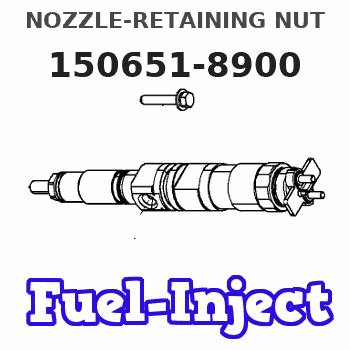Information nozzle-retaining nut
BOSCH
9 431 611 384
9431611384
ZEXEL
150651-8900
1506518900
NISSAN-DIESEL
19314Z9104
19314z9104

Rating:
Include in ###:
Cross reference number
Zexel num
Bosch num
Firm num
Name
150651-8900
9 431 611 384
19314Z9104 NISSAN-DIESEL
NOZZLE-RETAINING NUT
C 53PZ RETAINING NUT NH parts NH
C 53PZ RETAINING NUT NH parts NH
Information:
A measurement of fuel consumption is used to check fuel system performance. If fuel consumption of an engine is within the tolerance of specifications shown in the Fuel Setting And Related Information Fiche, the fuel system is performing correctly and no additional time should be spent checking fuel delivery.Fuel consumption - If the specified amount of fuel is being injected into the engine, the fuel delivery specification is being met. Therefore, the basic fuel system (fuel pump and lines, transfer pump, filters and primary fuel pressure) is within functional limits. Additional time spent troubleshooting these components is probably not justified.Fuel system timing - Fuel cannot be burned efficiently if it is not injected into the cylinder at the correct time. Because engines only develop horsepower when they are running, timing must be measured when they are running. The pin timing of the engine is not adequate. Timing must be measured throughout the speed range (this also checks the timing advance operation).Intake manifold pressure - Manifold pressure is an indication of the overall health of the engine. Boost is affected by any one or all of the following: fuel consumption, compression (valve condition, piston ring condition), turbocharger performance, intake restriction (air filters), exhaust restriction (muffler) or timing.Recommended Procedure With Chassis Dynamometer
Possible Causes/Corrections 1. Check Records Used To Determine Fuel ConsumptionMake sure the records are accurate. The minimum period for accurate fuel records is one month or 10,000 miles. Check the tires (air pressure and size), the gap between the tractor and trailer, air deflectors, trailer width, trailer type, engine cooling fan and driver habits. See "Owner/Operator Input" section for more information on the questions that should be asked. 2. Minor Operating FaultsTo help identify a problem before a more involved troubleshooting procedure is started, follow the procedure given in the "Primary Engine Checks" section. 3. Fuel Ratio Control Out Of Adjustment Or DefectiveFollow the procedure in the Testing and Adjusting section of this Service Manual. 4. Check Engine PerformanceDo a Power Analysis Report (PAR), Level II, to check engine performance. See Special Instruction, Form No. SEHS8025 and SEHS7886 for the tooling and procedures to use. Be sure to make a record of the temperatures for inlet air, fuel (at filter base), lubricating oil and coolant. Also, check for excessive exhaust smoke.At this point, the governor fuel settings should be verified. See the Testing and Adjusting Section of this Service Manual for the correct procedures to use. Also refer back to the information learned earlier (see "Owner Operator Input" section) about truck specifications and application and judge whether or not the engine is performing as expected or customer expectation is realistic. 5. Worn Fuel NozzlesCheck the horsepower on a dynamometer as in Step 4 above. Make a replacement of the fuel injection nozzles and check the horsepower output again. If there is more than 10 hp difference the old nozzles had eroded orifices and were causing high fuel rate.An alternate test is to lower the fuel setting to get the
Possible Causes/Corrections 1. Check Records Used To Determine Fuel ConsumptionMake sure the records are accurate. The minimum period for accurate fuel records is one month or 10,000 miles. Check the tires (air pressure and size), the gap between the tractor and trailer, air deflectors, trailer width, trailer type, engine cooling fan and driver habits. See "Owner/Operator Input" section for more information on the questions that should be asked. 2. Minor Operating FaultsTo help identify a problem before a more involved troubleshooting procedure is started, follow the procedure given in the "Primary Engine Checks" section. 3. Fuel Ratio Control Out Of Adjustment Or DefectiveFollow the procedure in the Testing and Adjusting section of this Service Manual. 4. Check Engine PerformanceDo a Power Analysis Report (PAR), Level II, to check engine performance. See Special Instruction, Form No. SEHS8025 and SEHS7886 for the tooling and procedures to use. Be sure to make a record of the temperatures for inlet air, fuel (at filter base), lubricating oil and coolant. Also, check for excessive exhaust smoke.At this point, the governor fuel settings should be verified. See the Testing and Adjusting Section of this Service Manual for the correct procedures to use. Also refer back to the information learned earlier (see "Owner Operator Input" section) about truck specifications and application and judge whether or not the engine is performing as expected or customer expectation is realistic. 5. Worn Fuel NozzlesCheck the horsepower on a dynamometer as in Step 4 above. Make a replacement of the fuel injection nozzles and check the horsepower output again. If there is more than 10 hp difference the old nozzles had eroded orifices and were causing high fuel rate.An alternate test is to lower the fuel setting to get the
Have questions with 150651-8900?
Group cross 150651-8900 ZEXEL
Nissan-Diesel
150651-8900
9 431 611 384
19314Z9104
NOZZLE-RETAINING NUT
